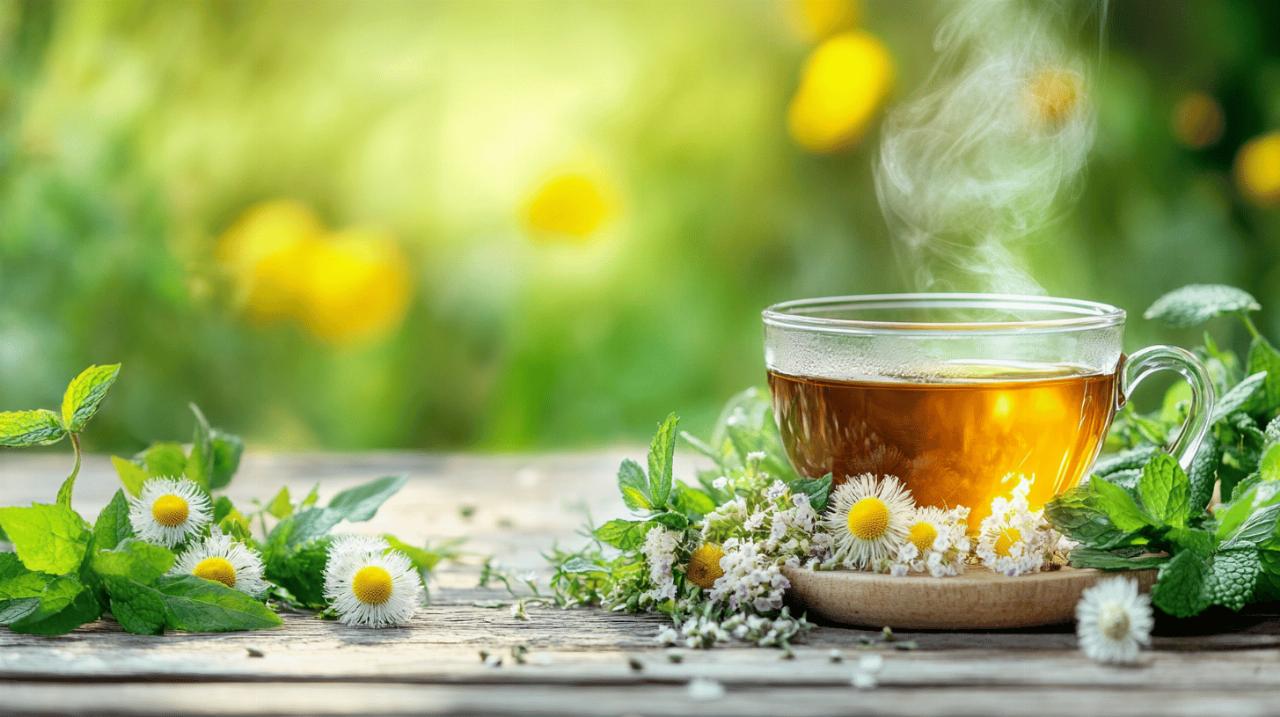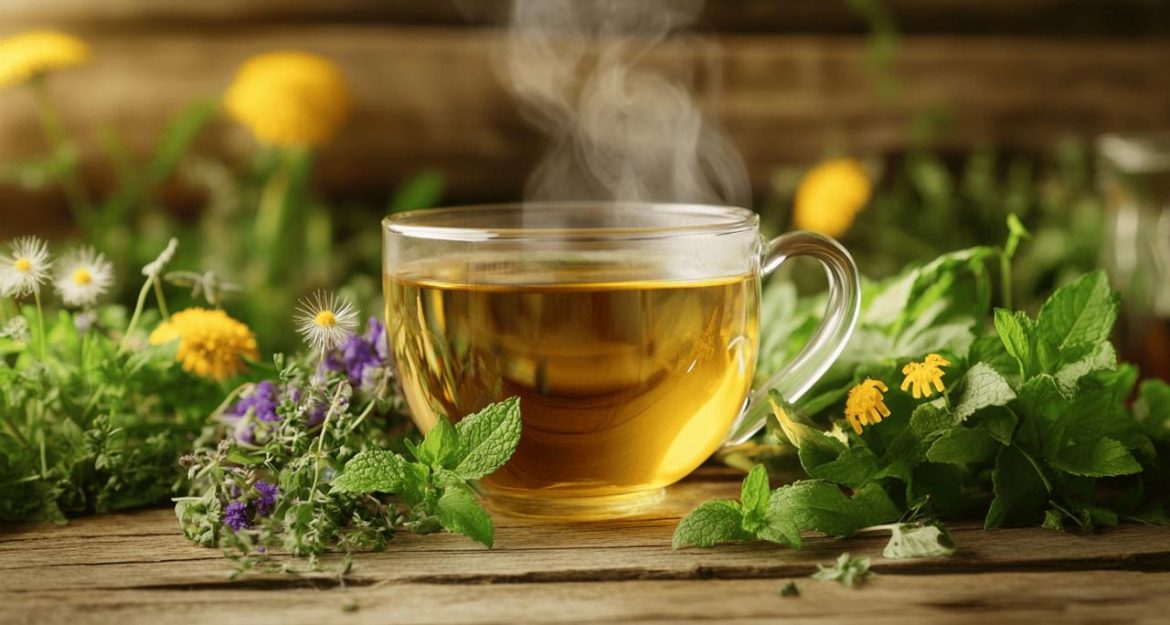In the realm of herbal remedies, few beverages offer both the historical depth and potential health benefits quite like the Tisane de Maylis. This traditional French herbal infusion has been gaining popularity among health enthusiasts across the UK, competing with our beloved homemade brews for a place in our daily wellness routines. Whether you're looking to cleanse your system after holiday indulgences or simply fancy exploring natural alternatives to your regular cuppa, this monastic brew and its homemade counterparts deserve your attention. Let's dive into what makes these detoxifying drinks so special.
The Remarkable Origins of Tisane de Maylis
Unlike your typical supermarket tea, Tisane de Maylis carries with it centuries of wisdom and careful cultivation. This isn't just any old herbal infusion thrown together for commercial gain; it's a thoughtfully crafted remedy with deep historical roots that stretch back through European monastic traditions.
Monastic roots: the abbey of maylis connection
The story of this remarkable tisane begins in the tranquil countryside of southwestern France, at the Benedictine Abbey of Notre-Dame de Maylis. These monks aren't just devoted to prayer and contemplation; they've become rather skilled herbalists over the centuries. The brotherhood has carefully preserved ancient knowledge of medicinal plants, passing down recipes and cultivation techniques from one generation to the next. What makes their approach particularly special is how they've blended spiritual devotion with practical herbalism, creating remedies meant to support the body as a vessel for the spirit.
Traditional Growing Practices at the Abbey
The monks at Maylis don't simply grow herbs; they cultivate them with extraordinary care and attention. Their gardens operate on strictly organic principles, long before such methods became fashionable. Each plant receives attention according to lunar cycles and seasonal rhythms, following traditions dating back hundreds of years. The soil itself is nurtured through natural composting and crop rotation, creating an ideal environment for medicinal herbs to develop their full therapeutic potential. This commitment to purity extends to the harvesting process, where plants are gathered by hand at specific times of day to maximize their beneficial properties.
Powerful ingredients for natural cleansing
The effectiveness of Tisane de Maylis doesn't come from clever marketing but from its carefully selected botanicals. Each ingredient serves a purpose in the overall cleansing mission of this remarkable brew, working in harmony to support various bodily systems.
Spotlight on Lepidium Latifolium and Its Benefits
At the heart of the Maylis formula lies Lepidium latifolium, commonly known as broadleaved pepperweed or dittander. This rather unassuming plant packs quite a therapeutic punch. Traditional herbalists have long valued it for its impressive diuretic properties, making it particularly useful for supporting kidney function and helping the body eliminate excess fluids. Beyond its diuretic effects, this powerful herb contains compounds that may help stimulate liver function, aiding the body's natural detoxification processes. Historical texts suggest it was once widely used across Europe for treating water retention and supporting urinary health before modern pharmaceuticals replaced many traditional remedies.
The Synergistic Blend of Plants and Flowers
While Lepidium latifolium might be the star of the show, it doesn't work alone. The monks have created a symphony of complementary herbs that enhance each other's effects. Fragrant fennel seed adds digestive support while lending a subtle aniseed note to the infusion. Goldenrod contributes additional kidney-supporting properties while bringing anti-inflammatory benefits. Dandelion root and leaf work together to stimulate bile production and support liver function. Elderflower adds immune-supporting properties along with its delicate aroma. Together, these botanicals create not just a medicinal brew but a surprisingly pleasant-tasting tisane that makes the detoxification process rather enjoyable.
Health benefits: how maylis tisane supports your body
 The real question on everyone's lips is whether this monastic brew lives up to its healthful reputation. While individual experiences may vary, the traditional uses and preliminary scientific understanding of these herbs suggest several potential benefits.
The real question on everyone's lips is whether this monastic brew lives up to its healthful reputation. While individual experiences may vary, the traditional uses and preliminary scientific understanding of these herbs suggest several potential benefits.
Liver and kidney support: flushing out toxins
Our bodies face constant bombardment from environmental toxins, processed foods, and the occasional overindulgence. The liver and kidneys work tirelessly as our primary filtration systems, and the herbs in Maylis tisane appear specifically chosen to support these vital organs. The diuretic properties of several ingredients encourage increased urination, helping to flush water-soluble toxins from the system more efficiently. Meanwhile, bitter compounds found in plants like dandelion stimulate liver function, potentially aiding in the breakdown of fat-soluble toxins so they can be eliminated from the body. Regular consumption might help ease the burden on these hardworking organs, allowing them to function more efficiently in their natural detoxification roles.
Digestive system improvements and immune boosting properties
Beyond detoxification, Maylis tisane may offer broader digestive benefits. The carminative herbs in the blend can help reduce bloating and gas while soothing the digestive tract. This gentle action supports better nutrient absorption and waste elimination, creating a virtuous cycle of improved digestive health. Additionally, several of the herbs contain antioxidant compounds that may help combat oxidative stress and support immune function. Some users report feeling more energetic and experiencing fewer seasonal illnesses when incorporating the tisane into their daily routine. While not a miracle cure, these combined effects might explain why many people report feeling generally better when they make this herbal infusion part of their wellness regimen.
Diy detox: crafting your own herbal brews
While Tisane de Maylis offers a convenient option with centuries of monastic wisdom behind it, you needn't rely solely on imported French herbs. The British Isles have their own rich tradition of herbal remedies, many of which can be easily prepared in your own kitchen.
Kitchen cupboard alternatives to maylis
You might be surprised to discover that many effective detoxifying herbs are likely hiding in your kitchen or garden already. Nettle makes an excellent base for a cleansing infusion, supporting kidney function while providing a wealth of minerals. Mint not only freshens the breath but also aids digestion and supports liver function. Lemon balm adds a pleasant citrusy note while offering gentle calming properties that support the body during detoxification. For those with gardens, dandelions often considered weeds actually provide both leaves and roots that support liver function and can be harvested for free. Even common culinary herbs like rosemary and thyme contain compounds that support detoxification pathways. By combining these accessible ingredients, you can create your own British version of a detoxifying tisane.
Brewing tips for maximum detoxifying effects
The effectiveness of your herbal infusion depends greatly on how you prepare it. Unlike black tea, which quickly becomes bitter when steeped too long, herbal infusions often benefit from extended brewing times. For tough plant parts like roots and bark, a proper decoction works best—simmering the herbs in water for 15-20 minutes to extract their medicinal compounds. Delicate leaves and flowers, however, should be infused in hot water off the boil for about 5-10 minutes, covered to prevent the volatile oils from escaping. Consider making a larger batch and storing it in the refrigerator for up to three days, drinking it throughout the day for consistent support. Adding a touch of honey or a squeeze of lemon can make your homemade brew more palatable while adding additional benefits. The key is consistency—occasional use provides limited benefits compared to making these herbal infusions part of your daily routine.

